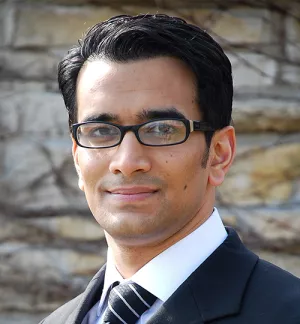LAST year I launched a family solutions charity for Muslims. Unity Family Services, based in Glasgow, helps Scottish Muslims solve personal disputes.
So far we have saved dozens of marriages, an outcome which is best for the couple, the children, and society in general.
Our main adviser on Islamic law, Shaykh Amer Jamil, is also trained in British law, and an important part of his job is ensuring the two do not conflict.
Some people may perceive us of trying to implement Sharia law by the back door through this counselling service. They are wrong.
The use of Islamic rules to settle disputes pose no threat to British law. Let me explain.
People who think that Sharia law threatens UK law tend to confuse UK law and non-legally binding arbitration, which settle disputes outside the legal system.
Every time a married couple make up after a fight, every time an angry employee sits across the table from his employer in an employment tribunal, and every time two businesses agree to settle their dispute out of court, a dispute is resolved outside the legal system. Civil courts are not involved.
British civil law is not there to solve every dispute which arises between British citizens — that would be ridiculous. It is there to solve civil disputes which cannot be solved any other way.
So when two people have a problem they need to solve, they have a number of options. They could work it out amongst themselves. They could decide to take the dispute to a friend, and agree they will abide by whatever the friend suggests.
If they are both Jewish, they can take it to a Jewish court, or if they are both Muslim they can take it to an Islamic council. The idea this threatens the unity of the British legal system is ridiculous.
What does threaten the unity of the British legal system is the idea that British courts should recognise Islamic judgments. For this we need to think about what would happen if the two people who took their dispute to a Sharia council disagreed about the outcome. Would they be allowed to take that dispute to the British courts? If we say they can, then we open ourselves up to a situation in which the British courts accept the rulings of an Islamic court.
That is what some elements in the Muslim community want and it is simply not acceptable. We live under the rule of law, there can only be one set of laws, and that is British law. Not least because our experience with Unity Family has shown that incorrect rulings by some of these so-called Sharia councils go against the fundamental ethos of Islam, and are often more suitable to Pakistani mores. We must reject calls to allow Sharia rulings to be formally recognised in British law under the 1996 Arbitration Act.
Although this point was made in a recent report for the think-tank Civitas, it was written and reported in a scaremongering tone. Perhaps that is not surprising, as there is no evidence that its author has visited the very courts on which he is pontificating. He has previously written that he has "very negative feelings about Islam", and a previous report by him has had to be removed from the Policy Exchange's website after much of its evidence was discredited.
Even so, the furore it generated was marked by Islamophobia and misunderstanding. As my charity shows, when two people use Islamic law to settle a dispute, they pose no threat whatsoever to the unity of the British legal system.
Azeem Ibrahim is the chairman of Unity Family Services and a research scholar at the Kennedy School of Government at Harvard University.
Ibrahim, Azeem. “Islamic Law Enhances Rather than Threatens the UK Legal System.” The Scotsman, July 14, 2009



